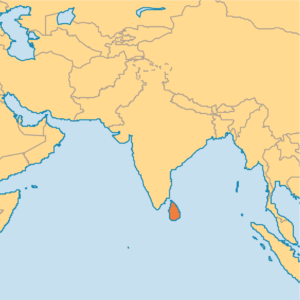January 17-2014

The United States caught Iran trying to sell oil to Sri Lanka in October disguised as coming from another country—but the sales were stopped before any oil was unloaded.
The Sunday Times of Sri Lanka reported that the US ambassador, Michele Sisson, went to President Mahinda Rajapaksva in October to inform him that the United States knew that two tankers booked for Sri Lanka were carrying Iranian oil in violation of US sanctions.
The Sunday Times also quoted S. Amerasekera, the acting chairman of the Ceylon Petroleum Corp., as saying two shipments containing Iranian crude had been turned away.
What wasn’t clear was whether the Sri Lanka government knew the tankers carried Iranian oil and was trying to sneak them past sanctions monitors, or whether the Sri Lankan government was itself fooled.
The United States has not said anything about its ambassador’s intervention.
The United States has, however, accused Iran of trying to disguise its oil as coming from other countries in order to evade sanctions.
Washington has singled out some shipping firms and tankers as working on behalf of Iran clandestinely. The US says Iranian tankers leave Kharg island and then meet the other tankers at some remote site on the high seas where the Iranian crude is shifted to the other tankers. Sometimes, Washington says, the other tankers are partially filled with oil from third countries so it is easier to disguise the Iranian oil as coming from a third country.
The Sunday Times had earlier reported other sales of Iranian crude to Sri Lanka. It did not say how long the sales had been going on or how much oil was involved.
Sri Lanka’s sole refinery was designed to operate most efficiently on Iranian crude and Sri Lanka has been very vocal about its displeasure with the US sanctions. Sri Lanka has little trouble getting crude from elsewhere, but that replacement crude doesn’t work as well in Sri Lanka’s refinery and its refined products are therefore more expensive.
The refinery has also had to close at least twice this year for lack of crude received in time.
